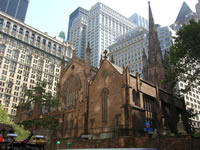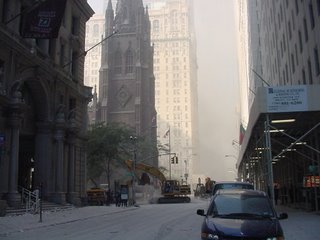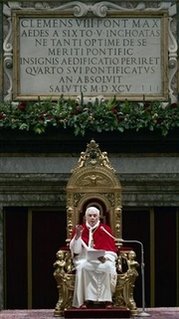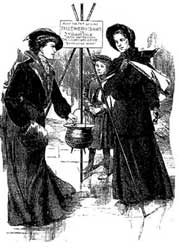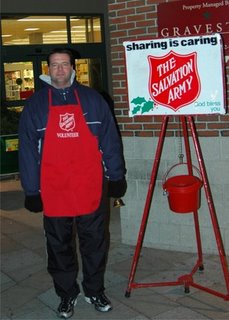Dear and outrageously-patient readers, you and I are just beginning to get acquainted over these last 4-plus months since I began blogging. Blogger lets me enter my 1,200-word "profile," but – of course – 1,200 words can't begin to describe any of us.
Here's a thing that matters very much to me, but which has not been worth my noting. I
hate,
loathe, and
despise winter! That hatred is personal and visceral to me! I now live in the bleak Midwest, where winter is especially grim. The whole earth goes to brown and grey. There are no evergreens. My sister keeps trying to convince me that the earth is simply taking a long nap. But my southern soul feels something different; it senses that the earth and all creation is dying. That's how it looks and feels to me.
And the earth stays dead for a very long time here. She starts to die in November, and she does not resurrect until April. And it's just about more than I can bear.
And that's not all. Besides the fact that it feels like the earth is dying, it also feels like the sun is dying. In this latitude, we had only 9 hours, 28 minutes of daylight today. In this season, there is
much more darkness than light. And that grieves this creature of the sun. When I get up in the morning, it's dark. When I leave the office at 5:00, it's dark. This is torture to somebody like me. I live for sunlight. In all my life, when I've gone house-hunting, there is only one
sine qua non: the place must be very light and bright, have many windows on all sides. I'm flexible about the number of bedrooms, whether the floors are hardwood or carpeted, whether or not there's a dishwasher. But windows ... light ... openness ... -- they are
not negotiable.
So I did not take it lightly when I woke this morning, aware that this is St. Lucy's day [in the old calendar] – the winter solstice – and the very shortest day of the year. I hate this too-long-dark season.
And I did as I have done every year now for several decades upon this day. I returned to John Donne – the most glorious poet who ever set pen to paper.
I think of his poetry very often, and have done so since long before I became an Episcopalian (and Anglican?). But, for some reason, I always remember this poem on this day, this shortest day of the year. Read it with me. Rejoice in his gift of language. Weep in the sorrow he articulates better than I ever can.
I give you John Donne's "Nocturnal upon St. Lucy's Day."
 A Nocturnal upon St. Lucy's Day,
A Nocturnal upon St. Lucy's Day,
Being the Shortest Day
by John Donne'TIS the year's midnight, and it is the day's,
Lucy's, who scarce seven hours herself unmasks;
The sun is spent, and now his flasks
Send forth light squibs, no constant rays;
The world's whole sap is sunk;
The general balm th' hydroptic earth hath drunk,
Whither, as to the bed's-feet, life is shrunk,
Dead and interr'd ; yet all these seem to laugh,
Compared with me, who am their epitaph.
Study me then, you who shall lovers be
At the next world, that is, at the next spring;
For I am every dead thing,
In whom Love wrought new alchemy.
For his art did express
A quintessence even from nothingness,
From dull privations, and lean emptiness;
He ruin'd me, and I am re-begot
Of absence, darkness, death—things which are not.
All others, from all things, draw all that's good,
Life, soul, form, spirit, whence they being have;
I, by Love's limbec, am the grave
Of all, that's nothing. Oft a flood
Have we two wept, and so
Drown'd the whole world, us two; oft did we grow,
To be two chaoses, when we did show
Care to aught else; and often absences
Withdrew our souls, and made us carcasses.
But I am by her death—which word wrongs her—
Of the first nothing the elixir grown;
Were I a man, that I were one
I needs must know; I should prefer,
If I were any beast,
Some ends, some means; yea plants, yea stones detest,
And love; all, all some properties invest.
If I an ordinary nothing were,
As shadow, a light, and body must be here.
But I am none; nor will my sun renew.
You lovers, for whose sake the lesser sun
At this time to the Goat is run
To fetch new lust, and give it you,
Enjoy your summer all,
Since she enjoys her long night's festival.
Let me prepare towards her, and let me call
This hour her vigil, and her eve, since this
Both the year's and the day's deep midnight is.
 It appears that there's increasing pressure to convert our blogs over to the "new" Blogger. I'll confess I've been very, very hesitant to do so. This little blog seems to be working ok, and I am loathe to do anything to change it. My techno-savvy ranks about a lowly "3" on a 0-to-10 scale. I've learned to do the few things that I need to do here. But if I had a problem, I doubt I'd have enough knowledge to go into the template and fix it.
It appears that there's increasing pressure to convert our blogs over to the "new" Blogger. I'll confess I've been very, very hesitant to do so. This little blog seems to be working ok, and I am loathe to do anything to change it. My techno-savvy ranks about a lowly "3" on a 0-to-10 scale. I've learned to do the few things that I need to do here. But if I had a problem, I doubt I'd have enough knowledge to go into the template and fix it.

